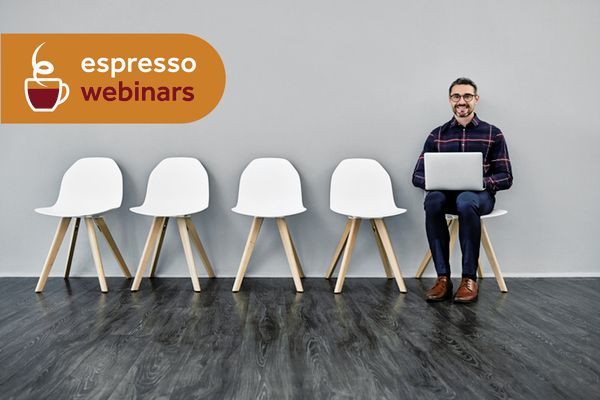caba debt advisor Q&A
Debt is something most of us have and something we are all capable of easily getting into. According to The Money Charity, UK personal debt stood at £1.7billion at the end of last year, with the average debt per household standing at more than £63,000.
This Debt Awareness Week, we want to help people avoid getting into debt and, if they are already in debt, implement proven strategies for tackling it. With that in mind, we sat down with Paul Day, one of our specialist debt advisors, for a behind-the-scenes expert look at 21st century debt.
Paul, who helps deliver our dedicated Debt Advice Service, has been providing debt advice to chartered accountants for almost 10 years. In this Debt Awareness Week Q&A special edition blog, we explore the ins and outs of debt, including the solutions available to people.
Q. Why do people get into debt?
A. Broadly speaking, debt tends to be caused by unexpected circumstances, such as somebody losing their job, their relationship breaking down or ill health. Debt can also impact self-employed people too; the loss of just one or two key clients can create a massive gap in income that can be impossible to fill with minimal impact on overall business performance. Before you know it, two or three months have passed without any new clients to fill the void and the company goes out of business.
At the moment, debt is more on people’s radar than ever before. The cost of living is rapidly rising - fuel, for vehicles and people’s homes is going up, so too is the cost of transport, food, household items and many other everyday costs.
People may have always had a stable income and expenditure budget until now, but as 2022 continues to play out, they may find they are no longer in the black, but creeping into the red. I sincerely hope this isn’t the case, but these are unprecedented times and the financial impact on people is already starting to bite, and some of the more significant cost hikes, e.g. gas and electricity, haven’t even come into force yet.
Q. What are the main signs of debt?
A. As we mentioned at the start of this article, most of us have some form of debt, i.e. a mortgage or student loan to pay off. Most of the time, we pay them off every month and think nothing more of it.
But debt can easily become ‘problem debt.’ And the number one warning sign somebody has this debt, is if they don’t know how much money they owe and who they owe money to.
Another tell-tale sign is if people are paying their household bills with credit cards, or something similar, and not their income. In this situation, your debt is constantly rising, which is a real red flag.
Q. What’s the first thing people should do when they realise they are in debt?
A. Create a household budget of income and expenditure. This will allow them to get an accurate picture of where they are before trying to tackle the debt. It may be the last thing you want to do because you’re worried about how much debt you are in, but it’s essential you set some time aside to assess the scale of your debt.
If you’re unsure about what you’re spending your money on and how the debt has been created, I always suggest people go through their bank statements for the last few months. And if you don’t know how much you owe, contact your banks, credit card companies and other money lenders to find out. It may be the last thing you want to do, but it’s essential you are as informed about your financial situation as possible, sooner rather than later too.
It’s not uncommon for people who are in debt to not open their post or tell themselves the situation will sort itself out because people aren’t banging on their door right now. It’s easy to feel ashamed and guilty about being in debt, but it’s best to tackle it when it’s a smaller problem before it becomes a much larger issue.
As a nation, we don’t tend to talk openly about our finances, it’s just not the done thing.
Q. How does caba help people who are in debt?
A. Our specialist debt advisors provide past and present ICAEW members, ACA students, ICAEW staff members, and their spouses, partners and children up to the age of 25, with free, impartial and confidential debt advice. This includes:
- One-on-one debt advice - helping people to budget and create a plan to tackle their debt
- Advice on benefits entitlement - and help with claiming benefits, which includes completing forms on people’s behalf, if needed
- Guidance on means-tested grants and donations - including help with fuel bills, white goods and shortfalls on household expenditure
We also have a couple of useful financial tools - our grants search tool, benefits calculator and our debt toolkit.
Q. Are there any other debt aid resources people can tap into?
A. In addition to our comprehensive Debt Advice Service, there’s the Money Helper website, which is a Government-run initiative. On there, you’ll find the Budget Planner, which is designed to help people account for every incoming and outgoing (which can be useful for creating that accurate debt picture we mentioned above).
It’s easy to feel ashamed, guilty or in denial about being in debt. However you feel, we are here to help you overcome it. We won’t judge you; we’ll simply work with you to identify the best options for getting on top of your debt. Talk to our debt advisors today.




